TDG #013: Blood Feuds and Mountains
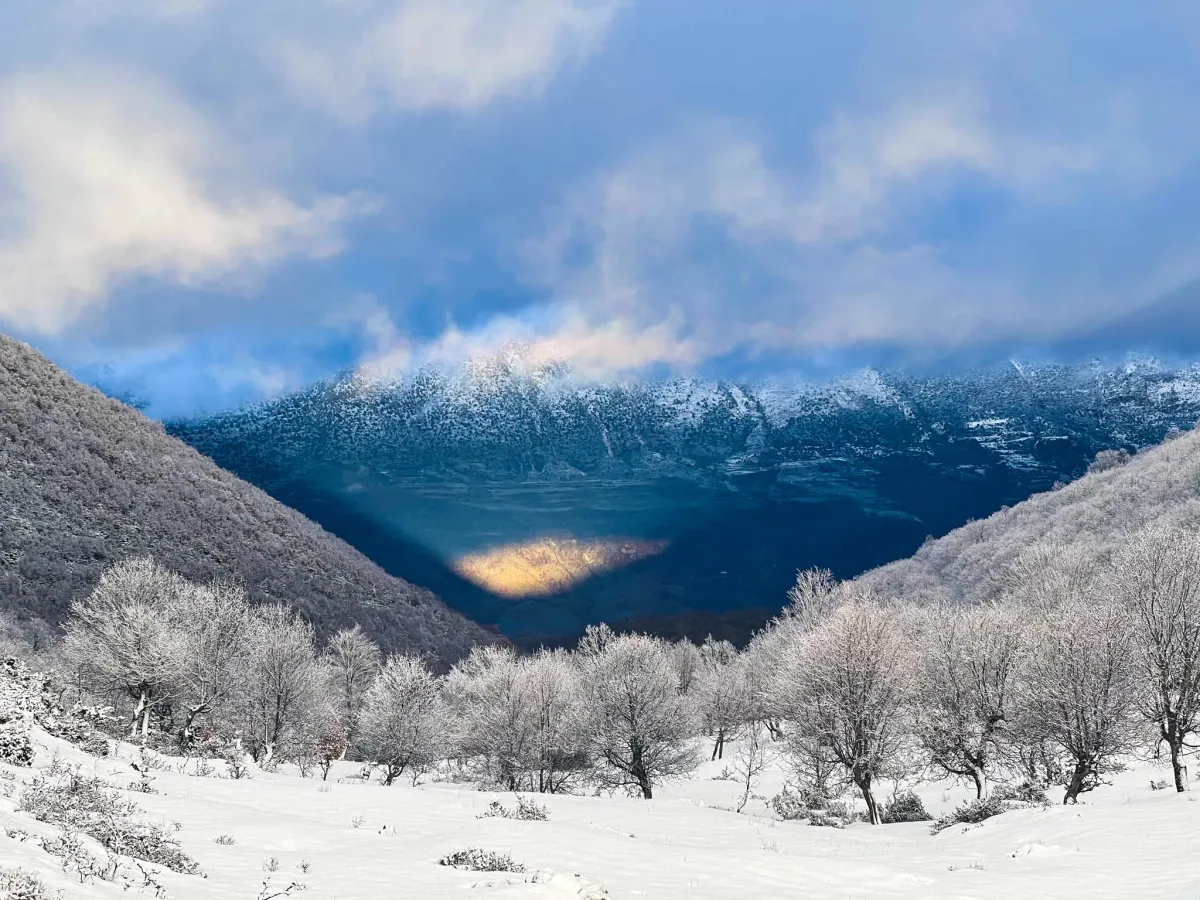
Friends –
While we were in Albania, one of the stops was down south in a town called Gjirokastër. It's a beautifully well-preserved town with a rich history and culture unique to the area.
One of the highlights of the trip was getting to do some off-roading. I contacted a company called Experience Gjirokastër who was kind enough to set me up with Dini, an Albanian off-road extraordinaire. Since it was the middle of January, Experience Gjirokastër and Dini were a little surprised that there were two crazy Americans even in Albania during winter. Nevertheless, we set off in his customized Nissan Patrol to take on the mountains.
The mountains were incredible; you can read and see some more pictures below. But the most surprising discovery was something Dini mentioned during our many conversations. As we discussed hospitality and how welcoming Albanians have seemed, he said something about Albanians having an informal set of laws.
My research led me into the mysterious world of Albanian blood feuds.
The Kanun and Blood Feuds
The history of what is modern-day Albania is extensive and complicated. The region has been invaded, raided, or occupied by the Greeks, the Romans, the Byzantines, the Visigoths, the Huns, the Ostrogoths, the Normans, Serbs, the Venetians, and the Ottomans - and I'm probably even missing a few.
The combination of frequent governance changes and remote mountainous regions (~75% of their landmass) led Albanians to develop informal customary laws, or kanun, to provide some rules and guidelines for everyday life.
There have been a few sets of kanuns developed over the years, but the most prominent one is the "Kanun of Lekë Dukagjini," which was developed in the 15th century by Lekë Dukagjini, an Albanian ruler. For the majority of its existence, the kanun was only oral; it wasn't until the 19th century that Shtjefën Gjeçovi of Kosovo put it to text.
The laws and customs in the kanun cover virtually every part of life:
- The Church
- The Family
- Marriage
- House, Livestock and Property
- Work
- Transfer of Property
- The Spoken Word
- Honor
- Damages
- The Law Regarding Crimes
- Judicial Law
- Exemptions and Exceptions.
Here are some fun examples of snippets from the kanun:
"if your bees escape and go on someone else's property, you have the right to enter their property to retrieve them; if no one is pursuing the bees, whoever finds them can keep them"
And my personal favorite:
"if your goat ruins someone's vineyard, you are required to give them the amount of wine and raki that the destroyed vines would have produced"
Ok so 1) if you find rogue bees, you can probably keep 'em, and 2) keep your goat out of someone else's vineyard - got it. Although I do have some follow-up questions like: How long must someone be in pursuit of said bees to maintain ownership? What if a human ruins a vineyard while pursuing their lost bees? Regardless, the kanun is surprisingly detailed. Or maybe one's breadth of daily grievances was much narrower in 15th-century Albania.
One of the most foundational concepts in the kanun is hospitality. According to the kanun, one's guest is treated with the utmost respect:
"The house of the Albanian belongs to God and the guest"
In his book, Broken April, Albanian author Ismail Kadare puts it this way:
"The fact that anyone at all can suddenly become a guest does not diminish but rather accentuates his divine character. The fact that this divinity is acquired suddenly, in a single night simply knocking at a door, makes it even more authentic. The moment a humble wayfarer, his pack on his shoulder, knocks at your door and gives himself up to you as your guest, he is instantly transformed into an extraordinary being, an inviolable sovereign, a law-maker, the light of the world. And the suddenness of the transformation is absolutely characteristic of the nature of the divine."
Even among enemies, some kanun laws of hospitality are respected. This explains why, from my anecdotal experiences, Albanians have been some of the most welcoming and hospitable groups I've met.
But the most infamous area of the kanun deals with honor. The concept of honor, whether yours, your family's, or your guest's, is essential in Albanian society. According to the Kanun, man's honor can be disgraced in a few ways:
"When somebody calls him a liar in the presence of other men or spits at him, when he is threatened and beaten, when he is given a shove, when his word of honor is not taken into account, when somebody has an affair with his wife or makes her leave him for someone else, when some acts of contempt are performed to his weapons and when somebody despise his bread or offends his guest or worker"
If someone disgraces your honor, you are "considered dead" until your honor has been cleansed. One of the only ways to cleanse your honor is through blood:
"An offense to honor is not paid for with property, but by the spilling of blood or by a magnanimous pardon"
Subsequently, once a life is taken, the two families are considered to be "in blood." The family of the murdered person has the right to take the life of the murderer, and so on. This cycle, known as blood feuds or gjakmarrje, can last generations and even wipe out the entire male bloodline in a family.
In the old days, men would isolate and hide in kullas, or tower houses, scattered throughout the northern Albanian highlands, to separate themselves from their families during a blood feud.
You're probably thinking that the kanun and these customary laws are relics of a bygone era with little bearing on today's Albania. Well, not quite.
Precise data on blood feuds are difficult to find; when a country has EU aspirations, they don't typically like sharing data about blood feuds for obvious reasons. But by some estimates, about 9,500 people were killed by blood feuds from 1991 - 2008. As of 2018, a reported 704 Albanian families were still affected by blood feuds. To this day, some families, including women and children, are forced to isolate themselves in their homes to avoid retaliation.
It would be easy to read the kanun and this part of Albanian culture as violent, barbarianism. But I'd argue that's a rather lazy interpretation.
I mentioned the number of occupiers and invaders the country has had over the years, but the trouble didn't stop after the Ottoman empire.
From 1944 - 1985, Albania was ruled by a brutal communist dictator named Enver Hoxha. During this time, the country was mostly isolated from the world. People were poor and hungry, so naturally, disdain and distrust of the government started percolating. Technically the kanun was outlawed, but it's unclear how effective the ban was.
Eventually, in 1992, the Democratic Party of Albanian won the nation's first free election, and the country began re-opening to the world. This also meant the transition from a planned economy to a free market.
Unfortunately, bad actors saw this as an opportunity for profit. Several banking-related pyramid schemes developed, coercing Albanians to invest in exchange for high-interest rates. In 5 years, two-thirds of the population invested in these pyramid schemes. Many government officials profited and did nothing to prevent the inevitable collapse.
According to the IMF (which also played a role in this development):
"The wide appeal of Albania's schemes can be attributed to several factors, including Albanians' unfamiliarity with financial markets; the deficiencies of the country's formal financial system, which encouraged the development of an informal market and, within this market, of the pyramid schemes; and failures of governance."
By 1996-97, the financial system collapsed, and Albania went through a bloody civil war. Weapons depots were looted, and about 2,000 people were killed.
The point is to illustrate the country's tragically fascinating history and why Albanians' distrust of the government runs deep. It's a big reason people ended up turning back to the kanun during the 1990s, accounting for the continued presence of blood feuds in modern-day Albania.
I suppose I bring this up because, during my research into the blood feuds, there were so many headlines related to "gun violence," "revenge killing," or "dark traditions" as some kind of fearmongering. Sure, something about blood feuds is a viscerally intriguing title (one that I couldn't help but use). But the media's narrative didn't quite match the Albania I came to know - a culture of generosity, kindness, and pride.
Of course, it is a problem that blood feuds still exist - it affects families, women, and children, and proliferates a patriarchal society - and there are attempts from the government and NGOs at reconciliation. But, like always, there are reasons why certain cultural elements have developed over time.
While talking to Dini, the topic of identity came up. Religion is often the answer, but Albania has no official religion. As of 2011, the population is 56.7% Muslim, 10% Roman Catholic, 6.8% Orthodox, 2.5% atheist, 2.1% Bektashi (a Sufi order), 5.7% other, and 16.2% unspecified. So, a relatively mixed bag. Country borders are another option, but he maligned the arbitrary borders put around Albania (see Kosovo). In a way, perhaps the kanun offers some degree of identity for Albanians.
There is so much depth to the kanun, Albanian history, and culture that is impossible to cover in an email. So if you're fascinated by this like me, I recommend reading Broken April by Ismail Kadare. It's a fictional book set in the 1920s and follows a boy and a couple through the Albanian highlands, grappling with the kanun and blood feuds. It's a captivating and quick read. Additionally, Mirjona Sadiku wrote a great brief on the kanun and Albanian culture in 2014.
Into the Mountains
As mentioned, we did some off-roading in the mountains east of Gjirokastër, in a place called the Zagoria Valley.
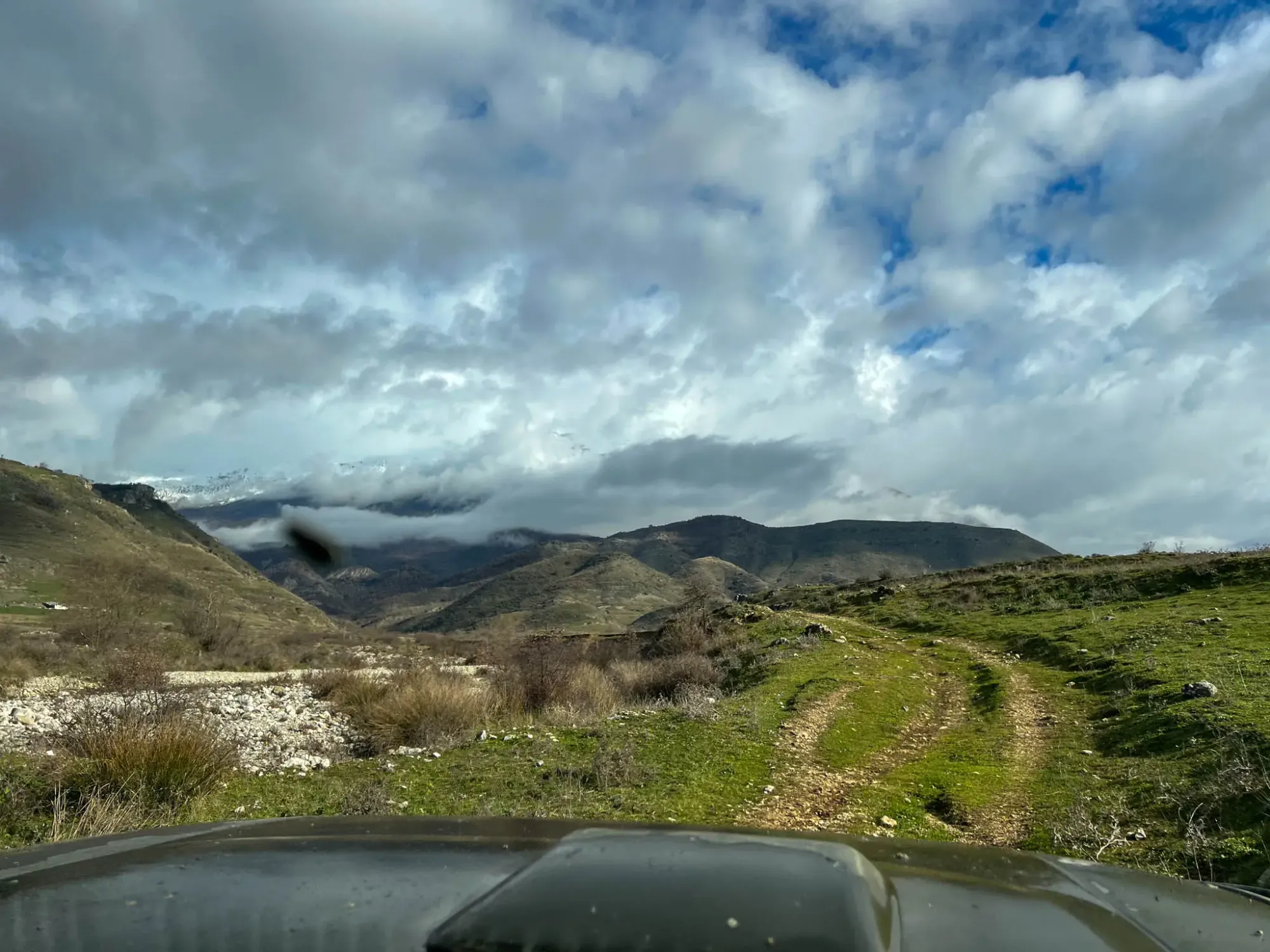
The water in this river was an incredible color of blue.
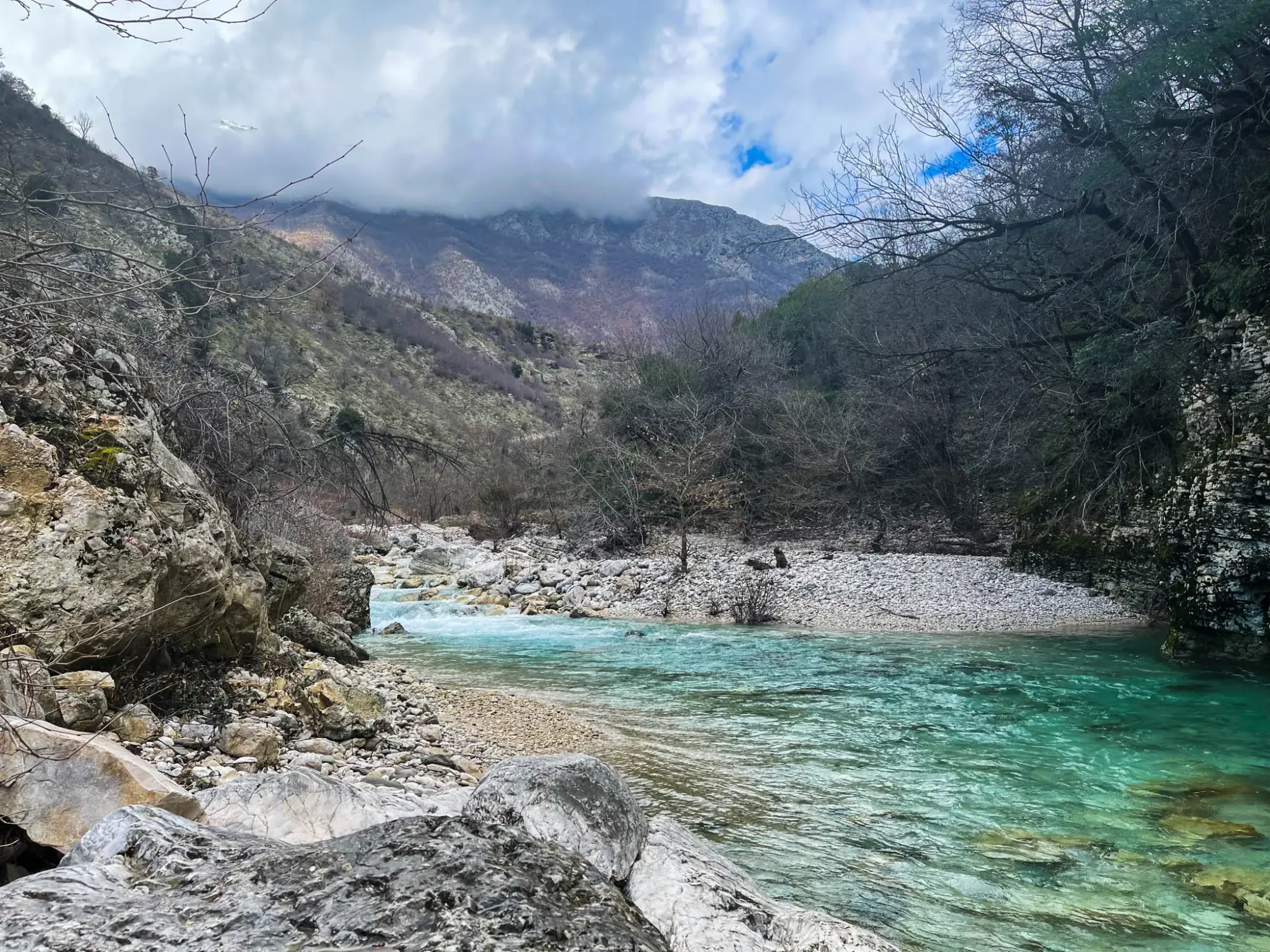
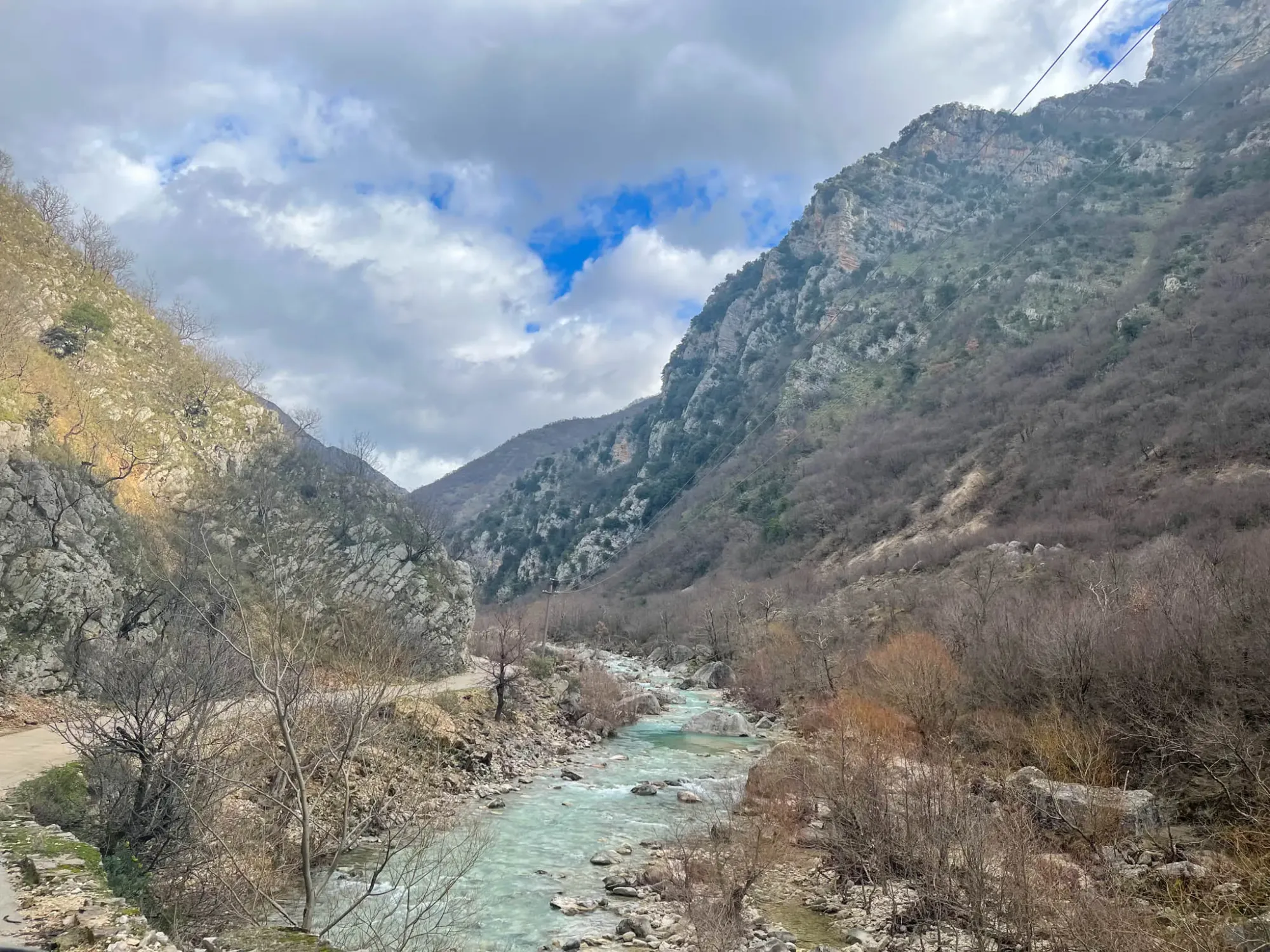
Then we found this old rickety bridge held together by some twigs and corrugated metal (and probably duct tape).
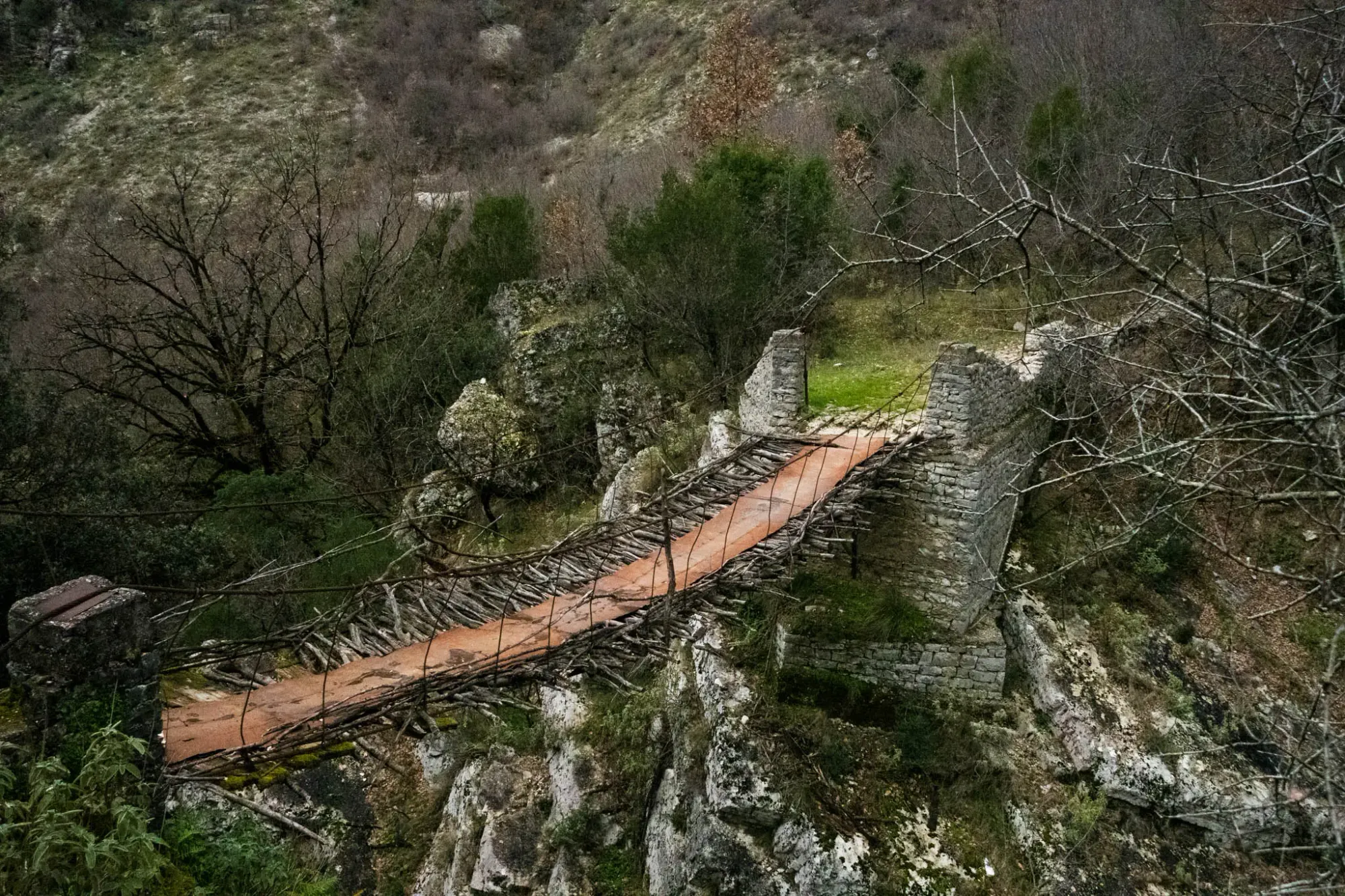
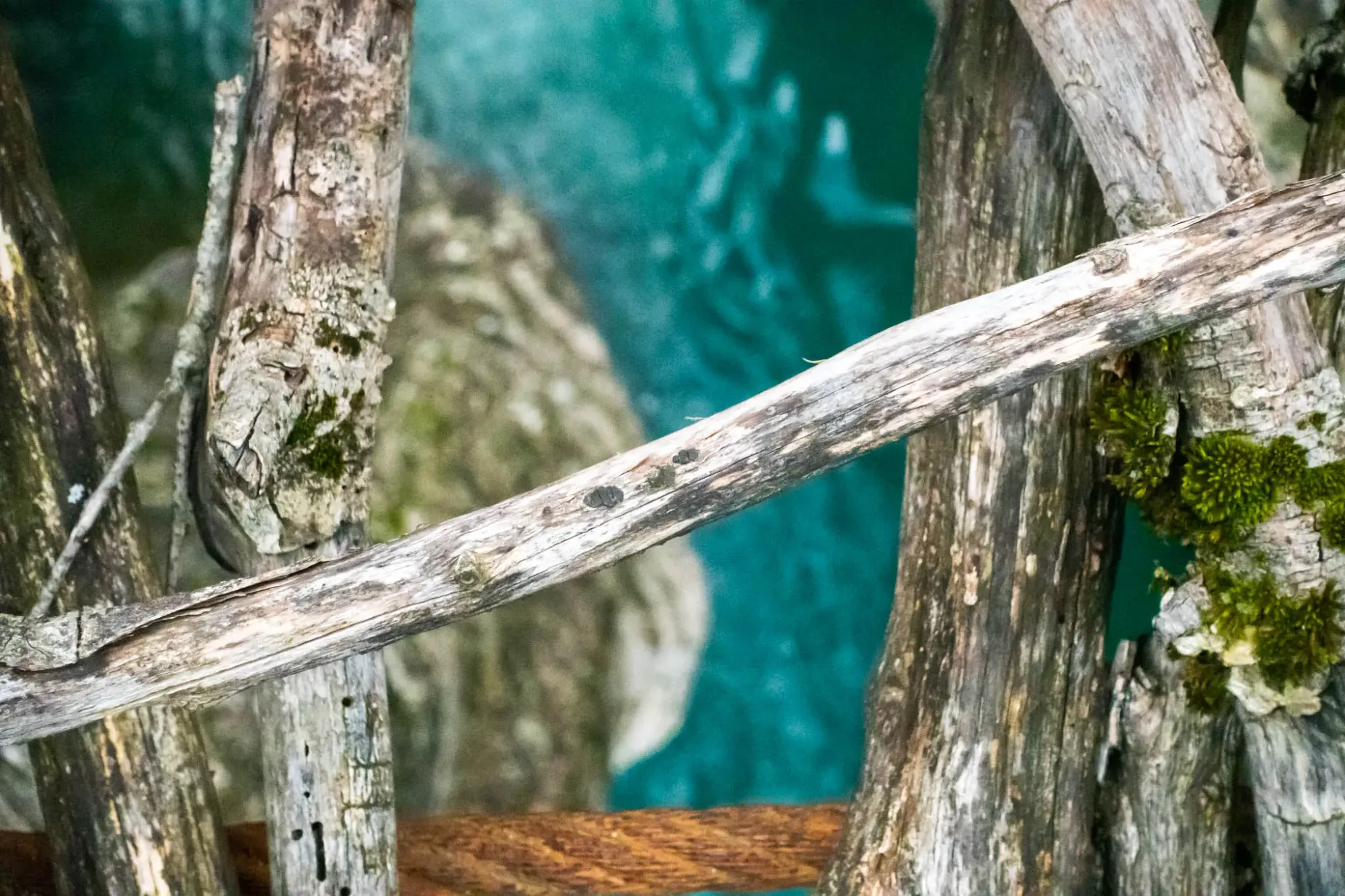
Dini took us to an Albanian village kafe/restaurant, Kafe Restorant Thanasis, in the small village of Poliçan. He told a story about when he and his friends were out hunting in the winter, got caught in a bit of a storm, and were getting desperate. That managed to make it to the kafe and asked for some bread. Not only did the owner give them bread, but a full spread of salads, stewed goat, wine, raki, and a warm fire. They've been friends ever since - just an example of Albanian hospitality (and perhaps kanun?) at work.
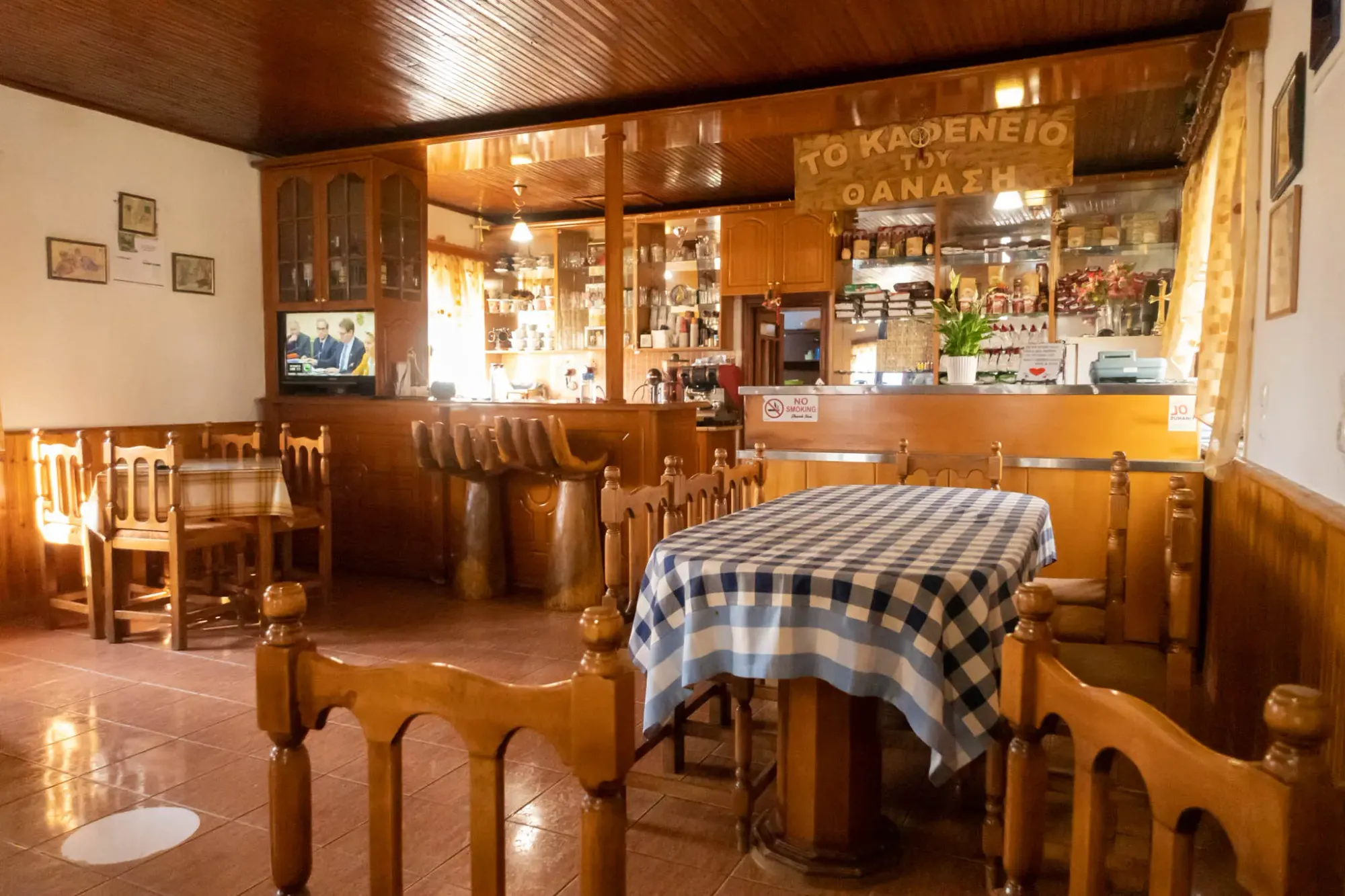
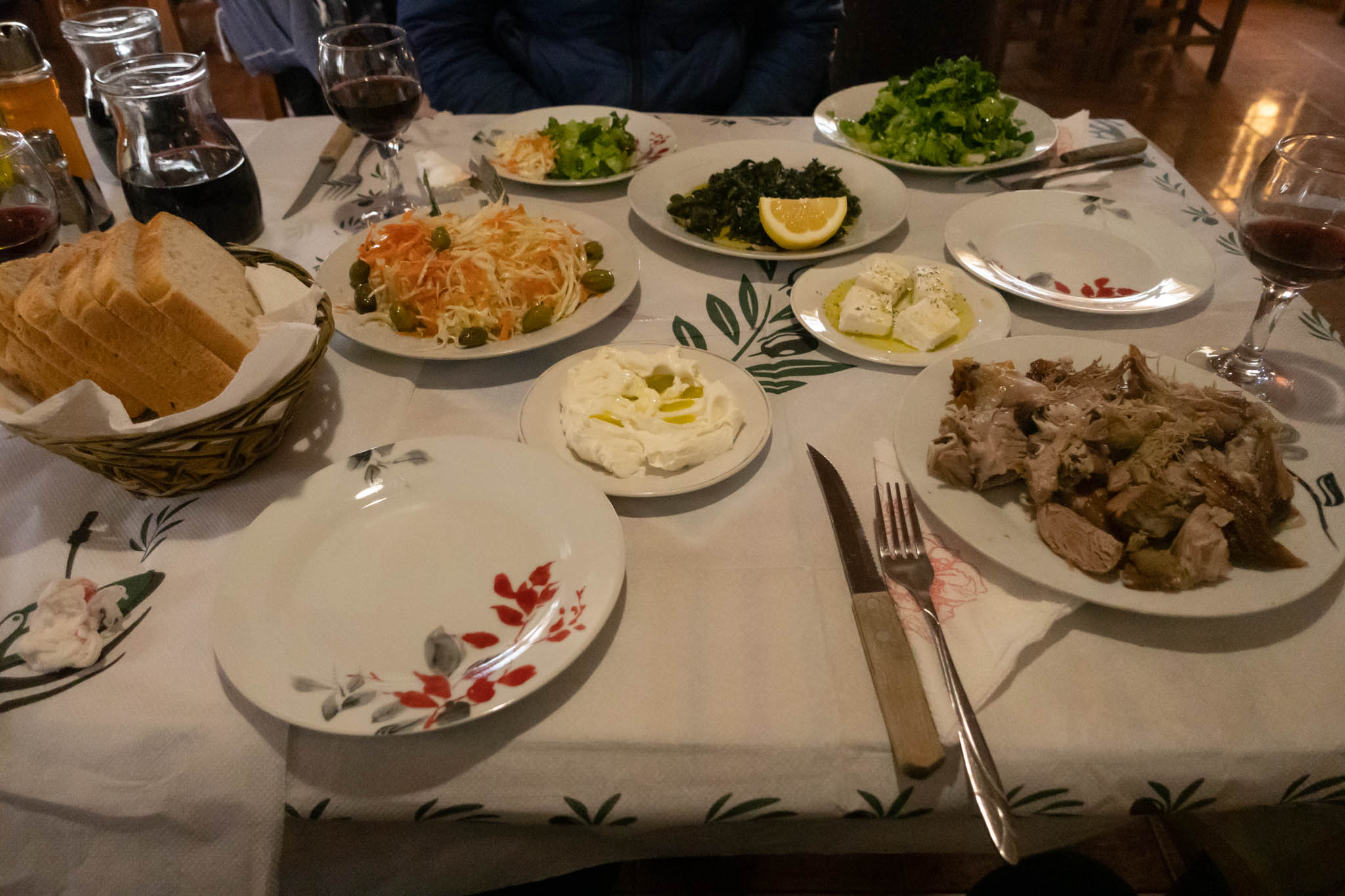
After lunch, it was back into the mountains.
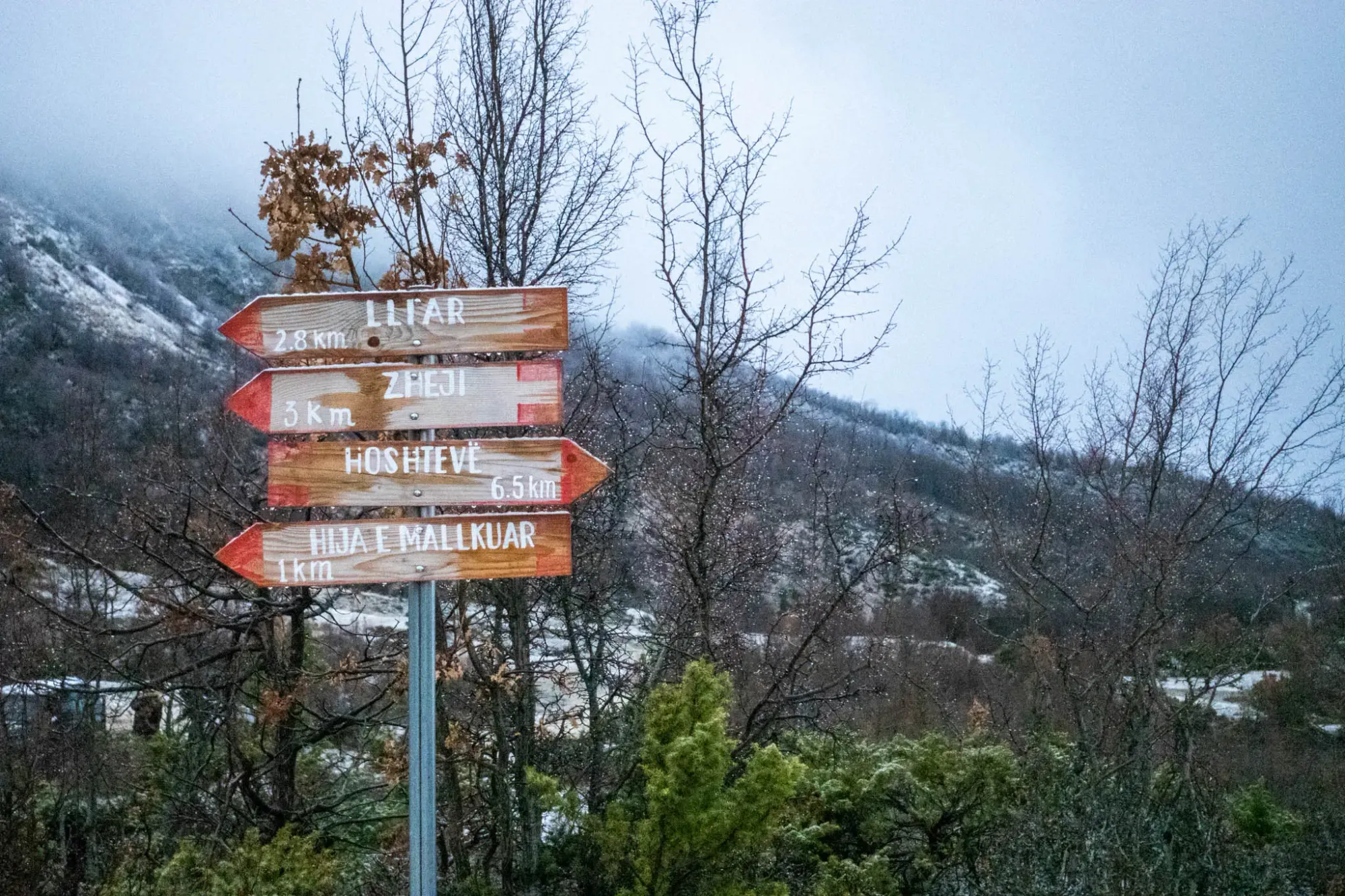
It started to get a tad snowy...
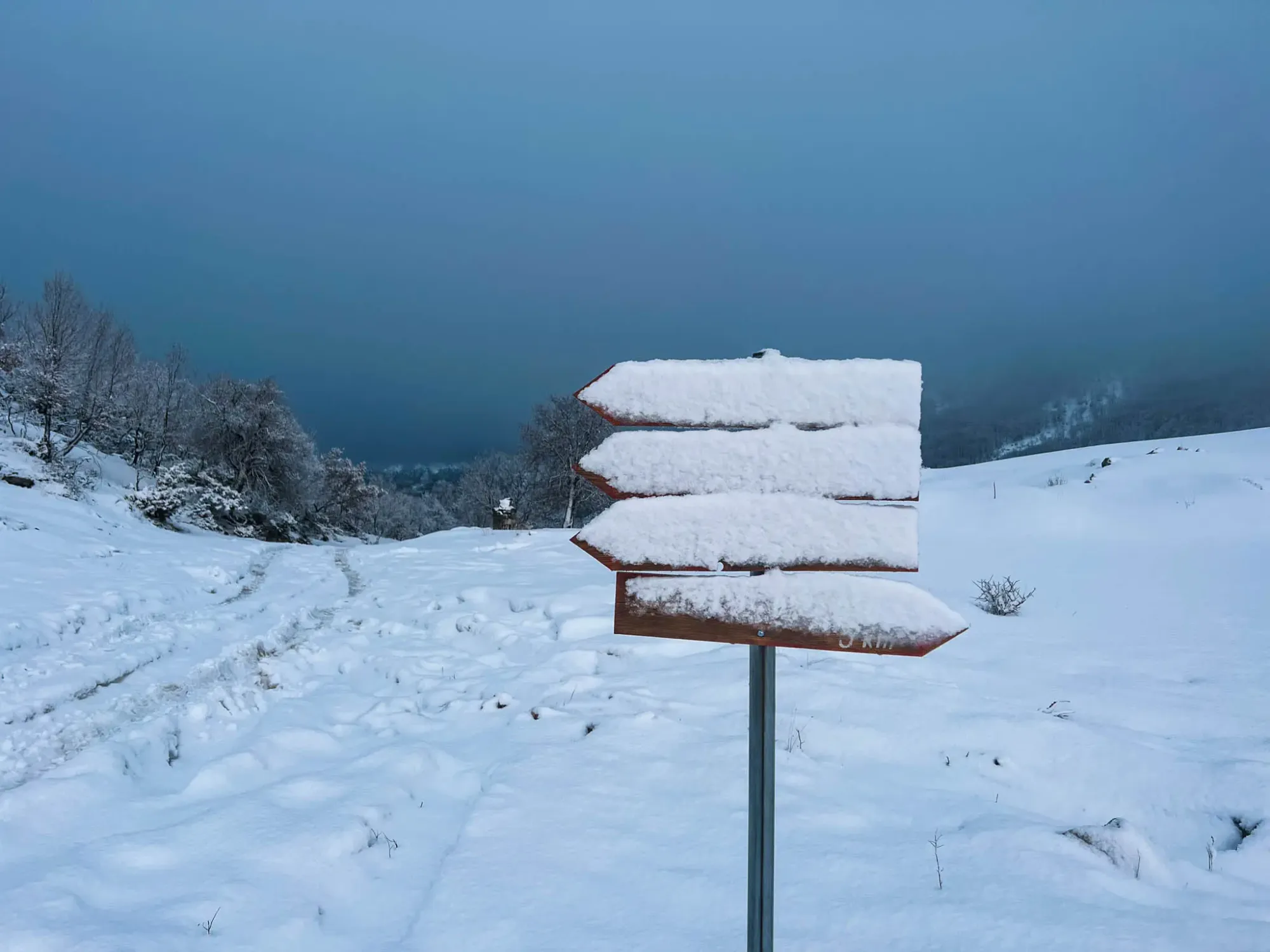
I found this old, a little eerie, abandoned hut.
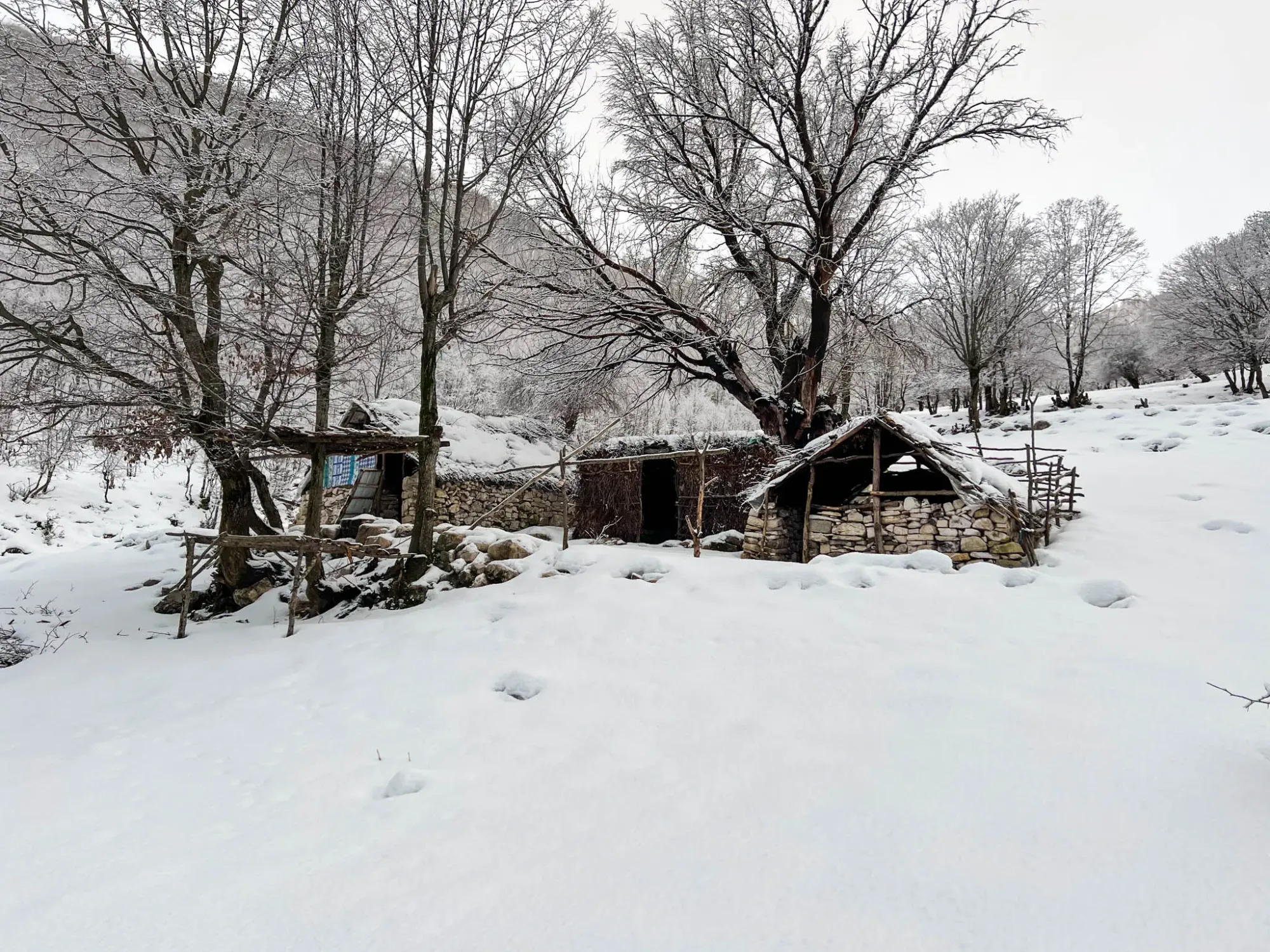
The views were pretty incredible.
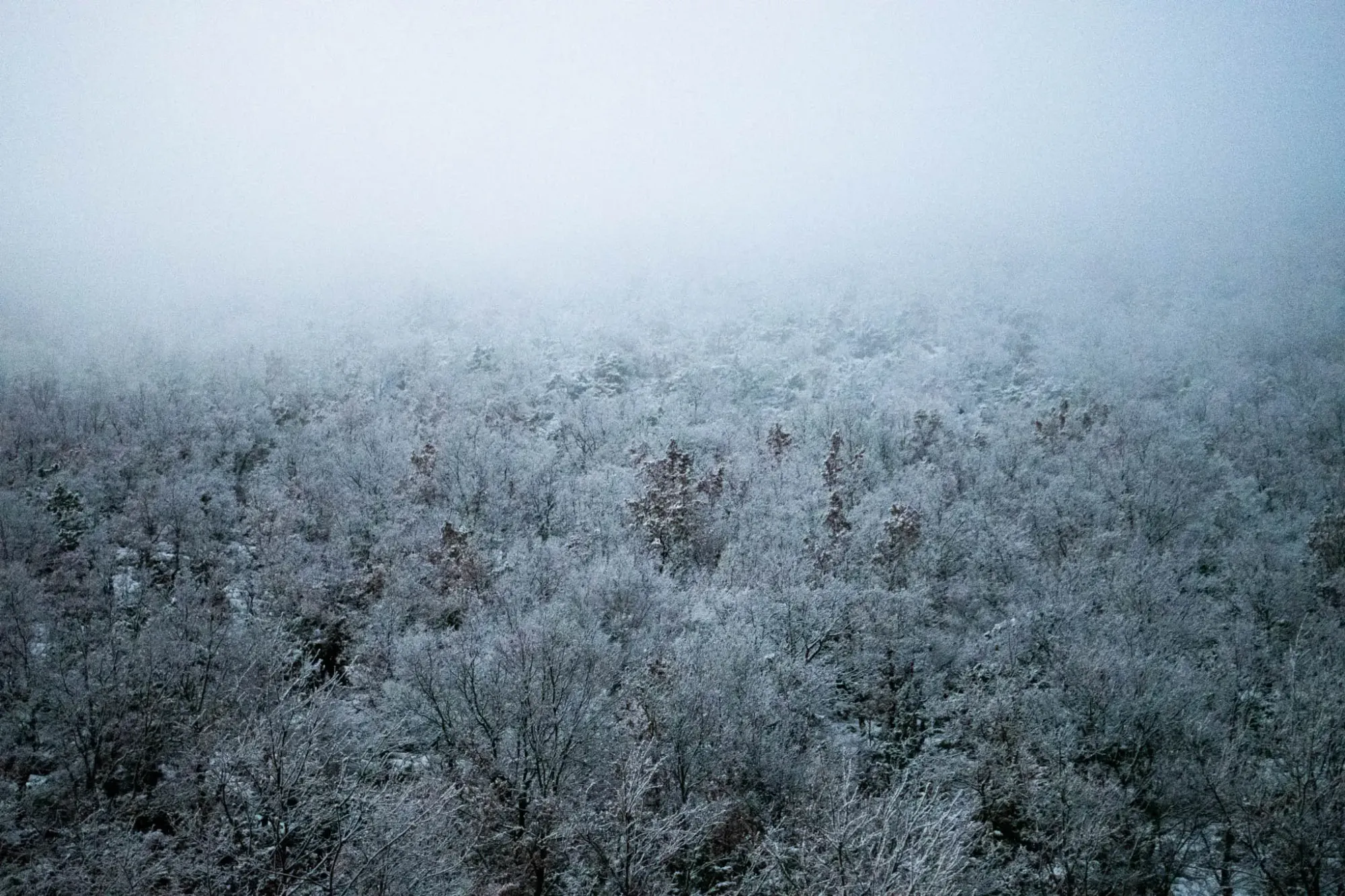
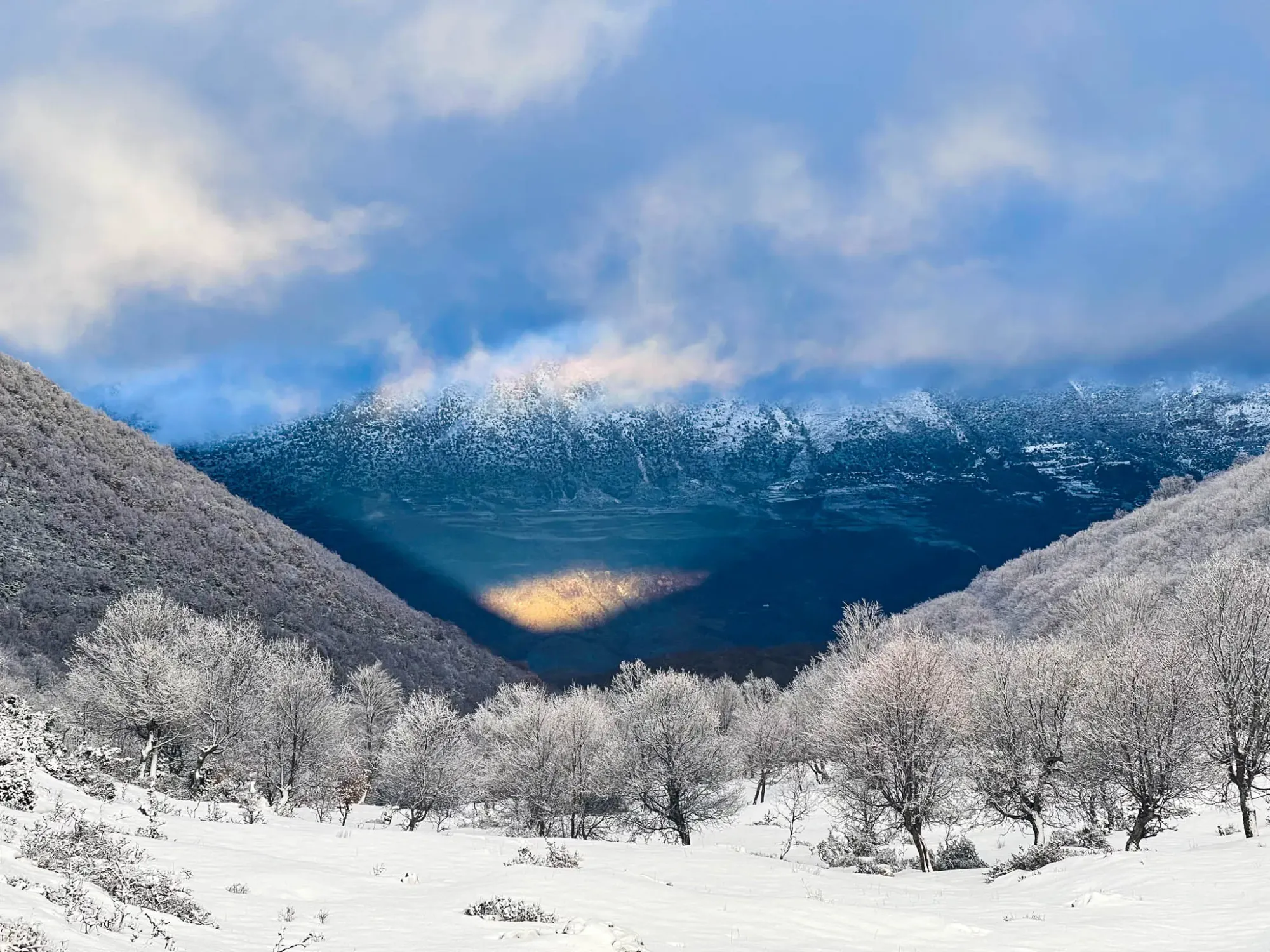
And, of course, the sunset wasn't bad either.
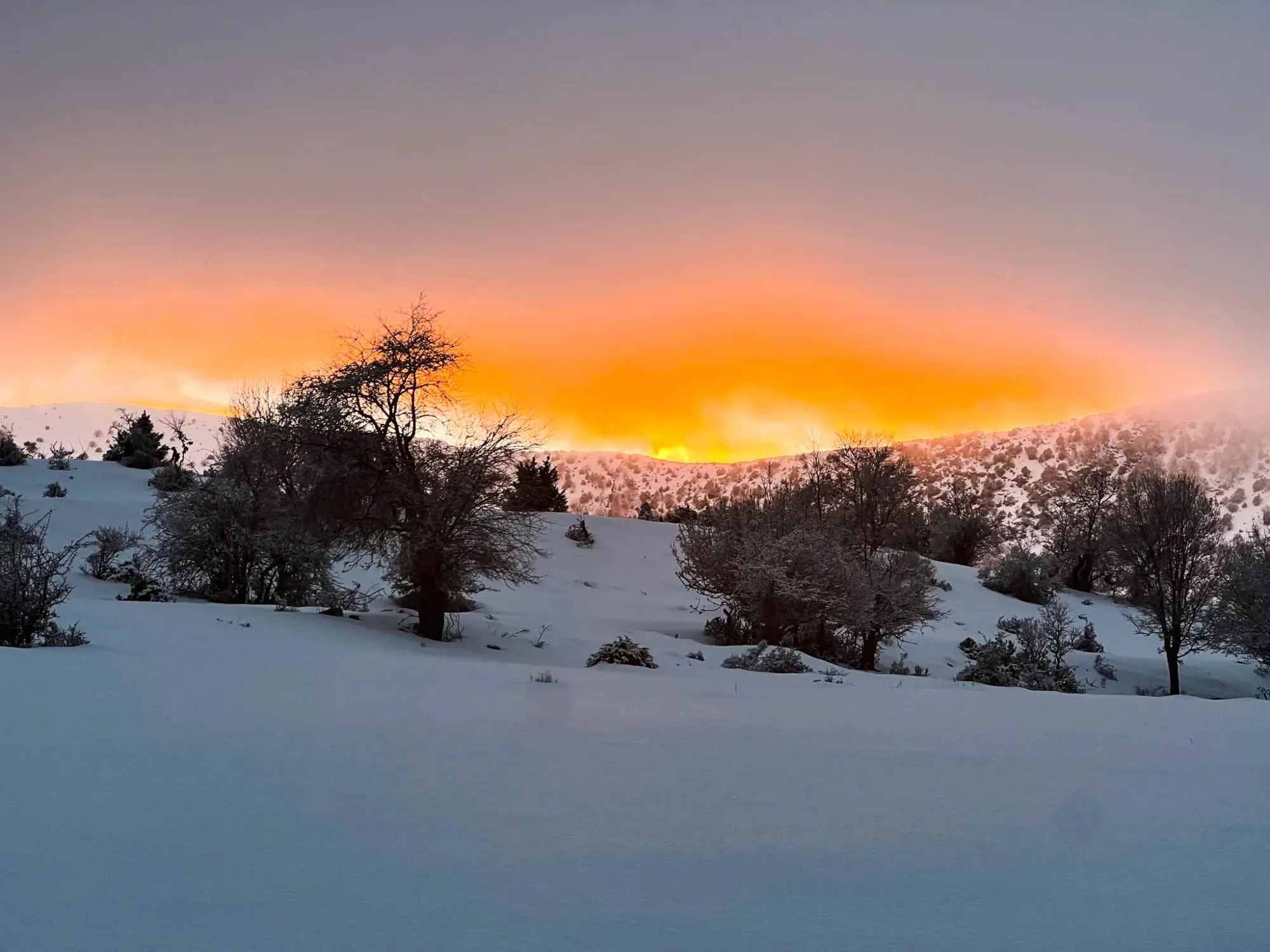
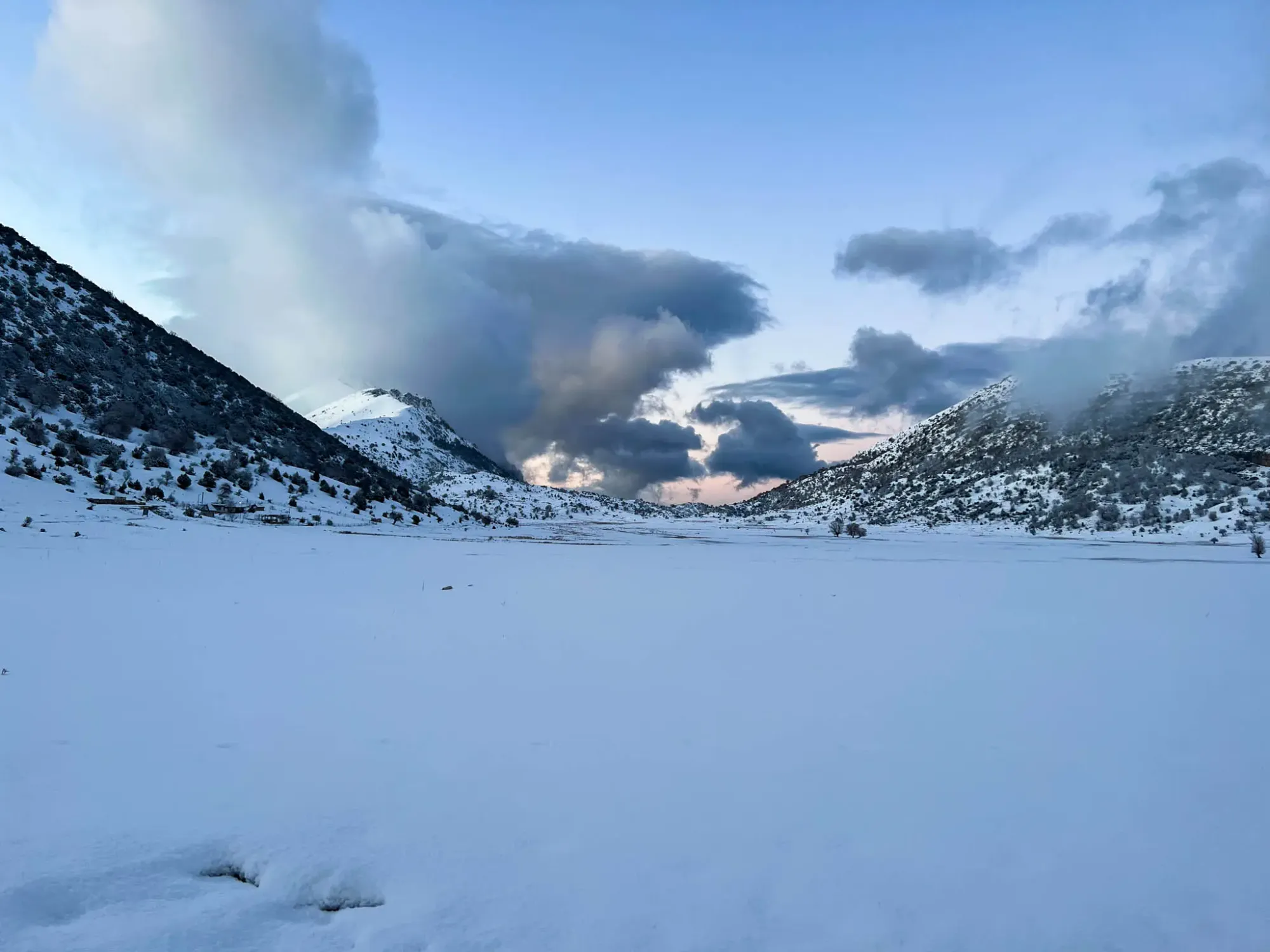
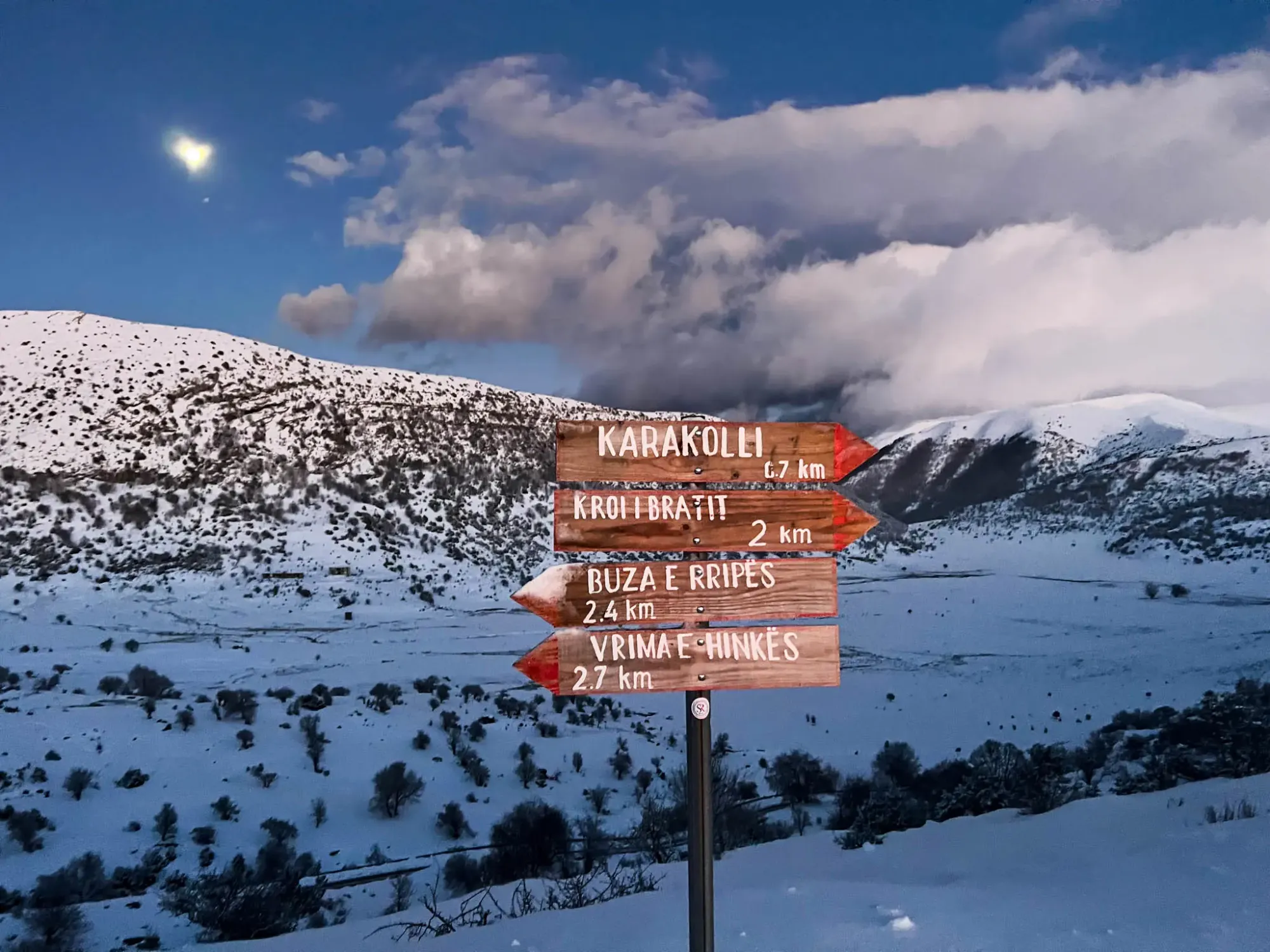
The last thing I'll say about Albania (for now) is that I have never met a country so proud of its heritage. On many, many occasions during our time in Albania, people would ask us how we liked it. After I told them I loved it, you could see a genuine sense of pride on their face. Every. Single. Person. It's a country with so much to offer and so eager to be truly seen by the rest of the world.
Alright, folks, that concludes the series on Albania. What did you think? Did you enjoy the multi-part series? Was it too much? Too little? Let me know in the comments or reply!
See you next week,
Skylar
P.S. - the past month, I've been fortunate enough to talk to some really incredible chefs and distillers down in Mexico, so more on that in the coming weeks!
